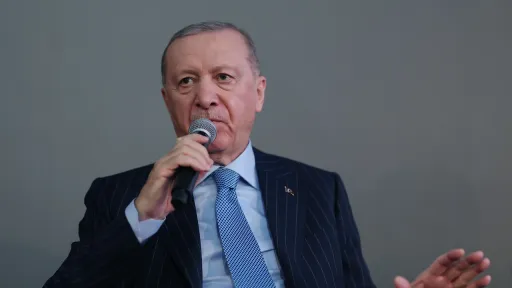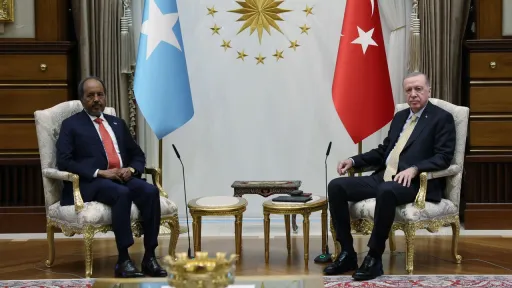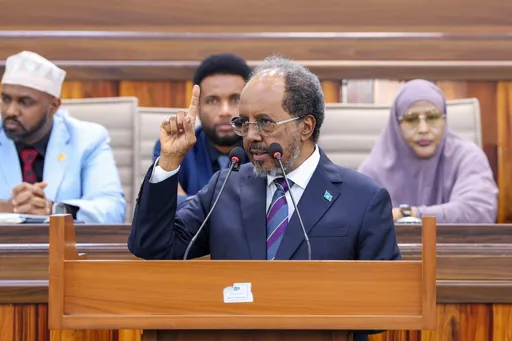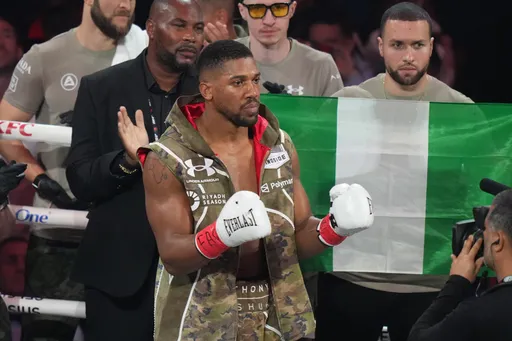When Hamas’s military commander Yahya Sinwar was elevated to the Palestinian resistance group’s top post, the move flew in the face of conventional wisdom that called for a relatively moderate leader like the assassinated Ismail Haniyeh amid Israel’s brutal war on Gaza.
The Hamas decision surprised many analysts, who thought that the movement would continue to keep its military and political leaderships in separate structures, allowing the Palestinian group’s political wing to continue the negotiation process with its archenemy Israel.
Hamas termed the selection of Sinwar as “a message of defiance to Israel” while Tel Aviv – which quietly accepted its hand in the assassination of Haniyeh, according to American media – responded to his new role as “another compelling reason to swiftly eliminate him and wipe this vile organisation off the face of the Earth".
Sami Berhum, a Gaza-based Palestinian journalist, has a clear idea of how the negotiation process between Hamas and Israel will continue under Sinwar’s leadership.
“Whoever wants to negotiate with Hamas must go down into the Gaza tunnels,” he tells TRT World, referring to the underground maze from where Sinwar is believed to be directing Hamas’s military response to Israel’s offensive since October 7.
“In practice, nothing has changed with the arrival of Sinwar, except that there is now no direct contact with the mediators” outside Gaza, says Berhum.
Also, Sinwar’s selection will possibly decrease external pressure on the leadership abroad because both the political and military leadership are now located in Gaza, according to the Palestinian journalist.
Negotiations through ‘tunnel vision’
Despite mounting global pressure, Israel’s most far-right government led by Prime Minister Benjamin Netanyahu has scuttled all efforts for a permanent ceasefire beyond a brief pause in the war in November, which allowed some Israeli hostages to return home in exchange for the release of 150 Palestinian prisoners.
Since then, all efforts at negotiations with the mediation of Qatar and Egypt have failed to break the deadlock to end the war that has killed nearly 40,000 people in Gaza, most of them children and women.
Third-party mediators and many analysts accuse Netanyahu and his extremist coalition partners and allies of deliberately sabotaging negotiations to reach a ceasefire deal, which can increase calls against his government’s resignation.
After Haniyeh’s assassination in Tehran, Netanyahu added more conditions for a swap deal, making it even more difficult to reach an agreement on either the release of hostages or a humanitarian ceasefire.
Many believe that achieving a ceasefire could become even more difficult under Sinwar, who is known to be an uncompromising leader.
Hamas said as much after his elevation. “They killed Haniyeh, the flexible person who was open to solutions. Now they have to deal with Sinwar and the military leadership,” a Hamas official told BBC, signalling that a peace deal could become even more elusive.
Yousef Alhelou, a Palestinian political analyst, feels that Sinwar’s leadership “might actually complicate the negotiations because now he will insist on his decisions” being implemented.
“He is going to give a hard time to the Israelis and Americans,” who are surprised with Hamas’s election of Sinwar, Alhelou tells TRT World.
But Alhelou is still hopeful that a prisoner swap deal and a ceasefire agreement under Sinwar might become a reality because no one wants to prolong the suffering of hostages as well as Palestinian civilians.
In previous interviews, Sinwar has reiterated that Hamas seeks peace, not war, but also insists the group will not raise a white flag to submit to Israeli occupation.
Sami al Arian, a prominent Palestinian professor and the director of the Center for Islam and Global Affairs at Istanbul Sabahattin Zaim University, does not think that Sinwar’s election to the political leadership will “impact” the negotiation process much because Hamas is negotiating as a group and not as an individual.
“There is no one dominant view,” he tells TRT World.
There is a consensus in Hamas on the conditions for hostage release and ceasefire no matter what the leadership is, the professor adds, referring to the group’s demand that Israel release all Palestinian prisoners in a swap deal, stop the war and withdraw its military from Gaza.
Hamas is also demanding that Israel lift the Gaza blockade and allow reconstruction of the Palestinian enclave.
Why Hamas chose Sinwar
Analysts view Hamas’s decision to elevate Sinwar as a direct “challenge” to Israel and its allies. “He is known to be a hardliner who is tough when it comes to his political decisions,” says Alhelou.
But Sinwar is also “a very intelligent person” who speaks Hebrew fluently, is well “aware of the mentality of Israelis”, and has dealt with them on many occasions, including the recent ceasefire and hostage deal negotiations, he adds.
Sinwar, also known as Abu Ibrahim, was imprisoned in Israel for 23 years, where he learnt Hebrew and studied Israeli history and politics. He also knows Gaza’s geography very well.
“After Haniyeh's death, many thought that the financial cost of the war might reorganise the movement, pushing the group to choose a ‘pragmatic’ and moderate figure based abroad…and move towards a political settlement through negotiations,” says Berhum.
He sees Sinwar’s elevation as a strategic decision to convey the message that Palestinians can win their right to exist not only on the negotiation table but also on the battlefield.
“It is quite natural that the political weight is now in Gaza, which is dealing with Israel’s war on the Palestinian territory, specifically under the leadership of Sinwar. Ultimately, this is the physics and logic of things,” he says.
A recent analysis published by CNN shows that most of Hamas battalions are able to reconstitute themselves and have capacity to fight back even after 10 months of fighting against a vastly superior and better-equipped Israeli military.
“The weight is on the field, neither in Doha nor anywhere else. Equations are forming in Gaza. Any political process can only bear fruit as a result of the field’s output,” says Berhum, referring to the Qatari capital where several rounds of peace negotiations have taken place.
Sinwar’s relations with Iran
The Hamas leader has long been considered a strong ally of Iran, a regional rival of Israel since the 1979 revolution and Tehran is likely to view his leadership as a welcome development for the country’s Palestine policy.
“Iranian officials view with great importance the arrival of Sinwar to the political leadership of Hamas,” says Berhum. Through Sinwar, Iran might have more say on the direction of the Gaza war and the Palestinian resistance “in indirect ways”, says the Gaza-based journalist.
“Sinwar is considered the key to restoring relations between Hamas and Iran. He has a strong relationship with Tehran and the Revolutionary Guards".
During the Syrian civil war, relations between Iran, which has supported the Assad regime against opposition forces, and Hamas, which had connections with anti-Assad forces, had deteriorated.
However, in 2017, both sides reestablished ties, and Sinwar became a leading actor in that reconciliation process. “The Iranian military support to Hamas and the Qassam Brigades is strategic,” declared Sinwar at the time.
Though Palestinians “do not rely on Iranians” to achieve liberation from Israel Tel Aviv, organisations such as Hamas and Islamic Jihad have “interests, especially logistical ones, in continuing military support” from Tehran, he adds.
➤ Click here to follow our WhatsApp channel for more stories.
























